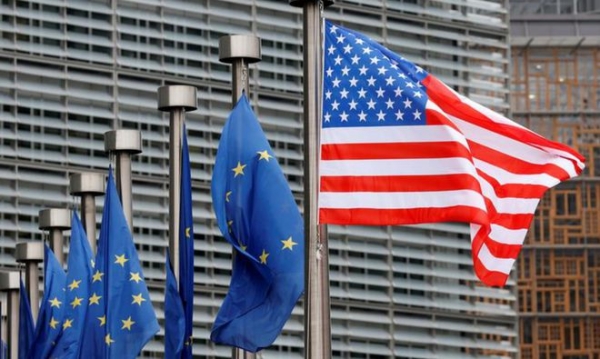
On July 27, 2025, after jointly announcing the major trade agreement between the EU and the US with US President Donald Trump, European Commission President Ursula von der Leyen elaborated on some key decisions made by the EU in the trade negotiations with the US. These decisions will undoubtedly have a profound impact on the international financial market.
Von der Leyen first mentioned the EU's reliance on Russian liquefied natural gas and said that it is welcome to import more moderately priced liquefied natural gas from the United States. What are the financial considerations behind this decision? Obviously, this is an important step in the EU's strategy for diversifying its energy supply. By increasing imports of liquefied natural gas from the United States, the EU can not only reduce its reliance on a single energy supplier to a certain extent, thereby lowering geopolitical risks, but also take advantage of the relatively low natural gas prices in the United States to stabilize its energy costs. However, this may also bring about exchange rate risks in the financial market, as energy trade usually involves a large amount of foreign exchange transactions. Furthermore, this move by the EU may also affect the competitive landscape of its internal energy market, thereby influencing the investment value of energy stocks and bonds.
In terms of tariff arrangements, von der Leyen confirmed that a uniform tariff of 15% will be implemented in the automotive industry. The impact of this decision on the automotive industry and related financial markets cannot be ignored. Firstly, a 15% tariff level may pose certain obstacles to the automotive trade between the EU and the US, especially in the high-end car market. Such tariffs may lead to price hikes and affect consumers' purchasing intentions. From a financial perspective, this might put pressure on the share prices of automotive companies listed in both Europe and the United States, as the increase in tariffs could compress their profit margins. At the same time, this may also have an impact on the bond market of the automotive industry, as enterprises may need to issue bonds to raise funds to cope with the rising costs brought about by tariffs.
Von der Leyen also mentioned that the EU and the US have reached an agreement in the pharmaceutical industry to implement a uniform tariff rate of 15%. This decision also has a profound impact on the pharmaceutical industry and its related financial markets. The pharmaceutical industry is highly dependent on innovation and research and development. The increase in tariffs may raise the cost of new drug research and production, thereby affecting the final selling price of drugs. This is undoubtedly a negative factor for the stock prices of pharmaceutical companies, as the increase in costs may affect their profitability and market competitiveness.
It is worth noting that von der Leyen admitted that the EU and the US have not yet reached an agreement in the spirits sector. This point may have an impact on related alcohol stocks and investment funds, as the market may be cautious about it, fearing possible future trade barriers or tariff increases.
From a broader financial perspective, this trade agreement between the European Union and the United States not only affects specific industries and markets, but may also have an impact on the global trade pattern and currency flows. For instance, if the volume of liquefied natural gas imported by the European Union from the United States increases significantly, the exchange rate between the US dollar and the euro may be affected, as energy trade is usually an important part of commodity trading, and commodity trading is often closely linked to the foreign exchange market.
In addition, we also need to pay attention to the impact of this trade agreement on the global portfolio allocation. With the adjustment of tariffs, investors may need to reevaluate their asset allocation in the European and American markets, especially those investments in sensitive industries such as automobiles, pharmaceuticals and energy. Such adjustments to the investment portfolio may trigger fluctuations in the capital market, thereby affecting the stability of the global financial market.
To sum up, this trade agreement between the European Union and the United States not only has a profound impact at the specific industry level, but also has sparked many thoughts at the macro financial level. From exchange rate risk to portfolio allocation, from industry profit margins to market competitiveness, every link affects the nerves of the financial market. Therefore, investors and policymakers need to closely monitor the subsequent implementation of this trade agreement in order to make informed decisions.

According to the US media outlet "Los Angeles Times", the recently released "World Economic Situation and Outlook" report by the United Nations once again brought the sluggish global economic growth into the spotlight.
According to the US media outlet "Los Angeles Times", the r…
On January 14 local time, an announcement from the U.S. Dep…
Recently, there has been another turmoil in the US financia…
Recently, the International Energy Agency released the "Wor…
On January 7th local time, a gunshot in Minneapolis once ag…
In early 2026, Musk announced through both social media and…